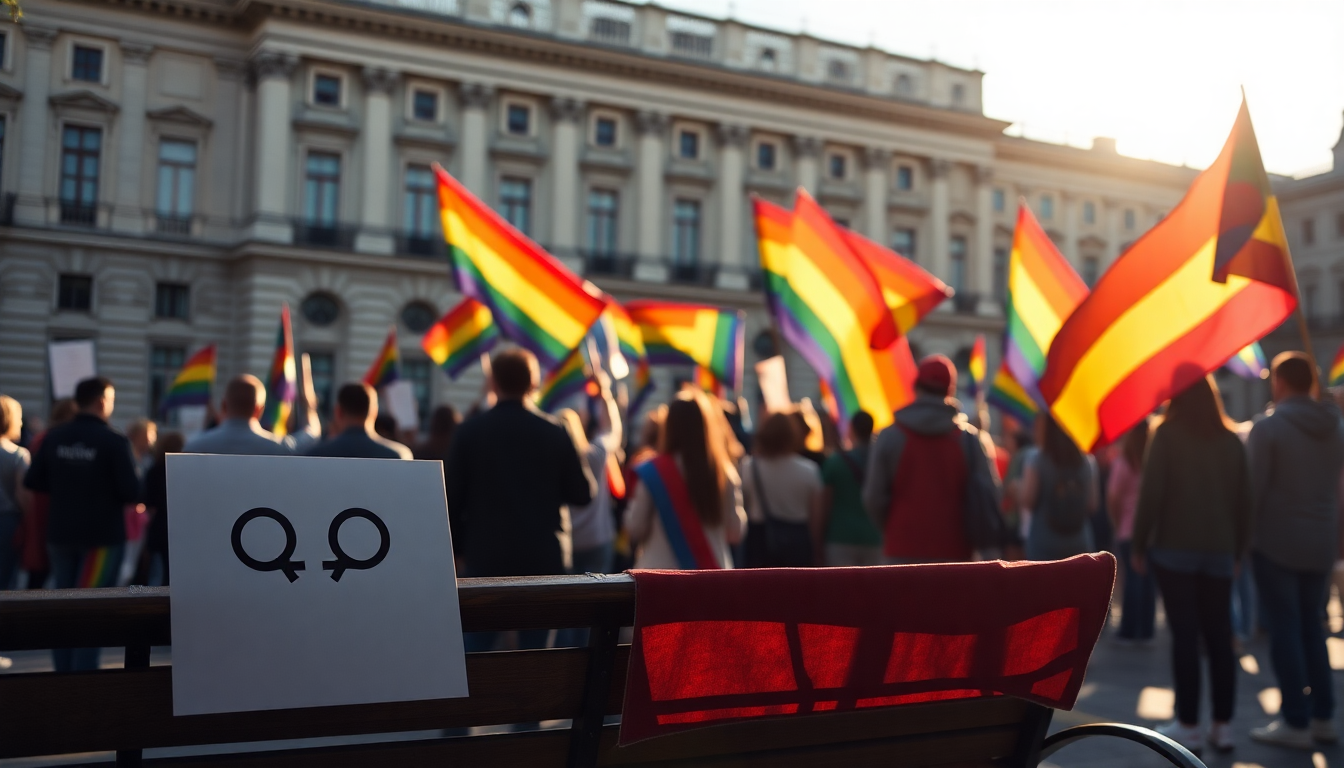Table of Contents
The recent ban on Pride parades in Hungary has ignited a firestorm of controversy, both at home and abroad. Hungarian Prime Minister Viktor Orbán has issued a serious warning: those who dare to defy this ban could find themselves facing legal consequences. But what does this mean for LGBTQ+ rights in Hungary? It’s a question that has sparked debates across Europe, drawing the attention of various nations and advocacy organizations.
What’s Behind the Ban on Pride Parades?
Hungarian authorities made the decision to prohibit the annual LGBTQ+ Pride march set for June 24. Their justification? A controversial law introduced earlier this year that prioritizes the protection of children over the right to assemble peacefully. This legislation has raised serious alarms about civil liberties in Hungary, especially for the LGBTQ+ community. In response to the ban, Belgium’s foreign ministry stepped in, issuing a travel advisory for its citizens. They reminded travelers of the risks involved in participating in any unauthorized demonstrations. This advisory certainly highlights the gravity of the situation, suggesting that attending the Pride event could lead to legal trouble.
Internationally, reactions have been swift and severe. Countries like the United Kingdom and Canada have updated their travel advisories for Hungary, warning that anyone attending could face fines or even criminal charges under the new laws. The growing unease among foreign governments reflects a larger concern about the erosion of rights and freedoms in Hungary, prompting urgent calls for action from the European Union.
Global Backlash and Advocacy Efforts
At the global level, at least 16 EU countries have publicly condemned the ban, urging the European Commission to take a stand against Hungary’s restrictions on Pride events. This coalition, which includes nations like Germany, France, and Sweden, represents a significant collective effort to defend LGBTQ+ rights within the EU. European Commission President Ursula von der Leyen has also joined the chorus, condemning the ban and calling for Hungarian authorities to allow the Pride march to go ahead as planned.
In response, Orbán has remained defiant, criticizing what he views as unwarranted interference from the EU in Hungary’s internal matters. He insists that the Commission has no business enforcing domestic laws and has reiterated this stance during recent interviews, emphasizing the necessity for citizens to comply with government regulations while warning of potential legal repercussions for those who do not.
The Bigger Picture and What Lies Ahead
The current legal and diplomatic tensions surrounding the Pride parade ban signal a pivotal moment in the conversation about LGBTQ+ rights across Europe. As nations struggle to balance national sovereignty with international human rights advocacy, Hungary’s situation serves as a critical case study. Observers are closely monitoring how this conflict unfolds, particularly regarding potential impacts on Hungary’s standing within the European community.
Looking ahead, the future of LGBTQ+ rights in Hungary remains uncertain. The government’s unwavering stance against Pride events could pave the way for even more restrictive legislation, possibly leading to heightened civil unrest and significant international backlash. It’s crucial for advocates of LGBTQ+ rights to stay vigilant and engaged, as the outcomes of these events could reverberate beyond Hungary, shaping the broader landscape of human rights throughout Europe.


